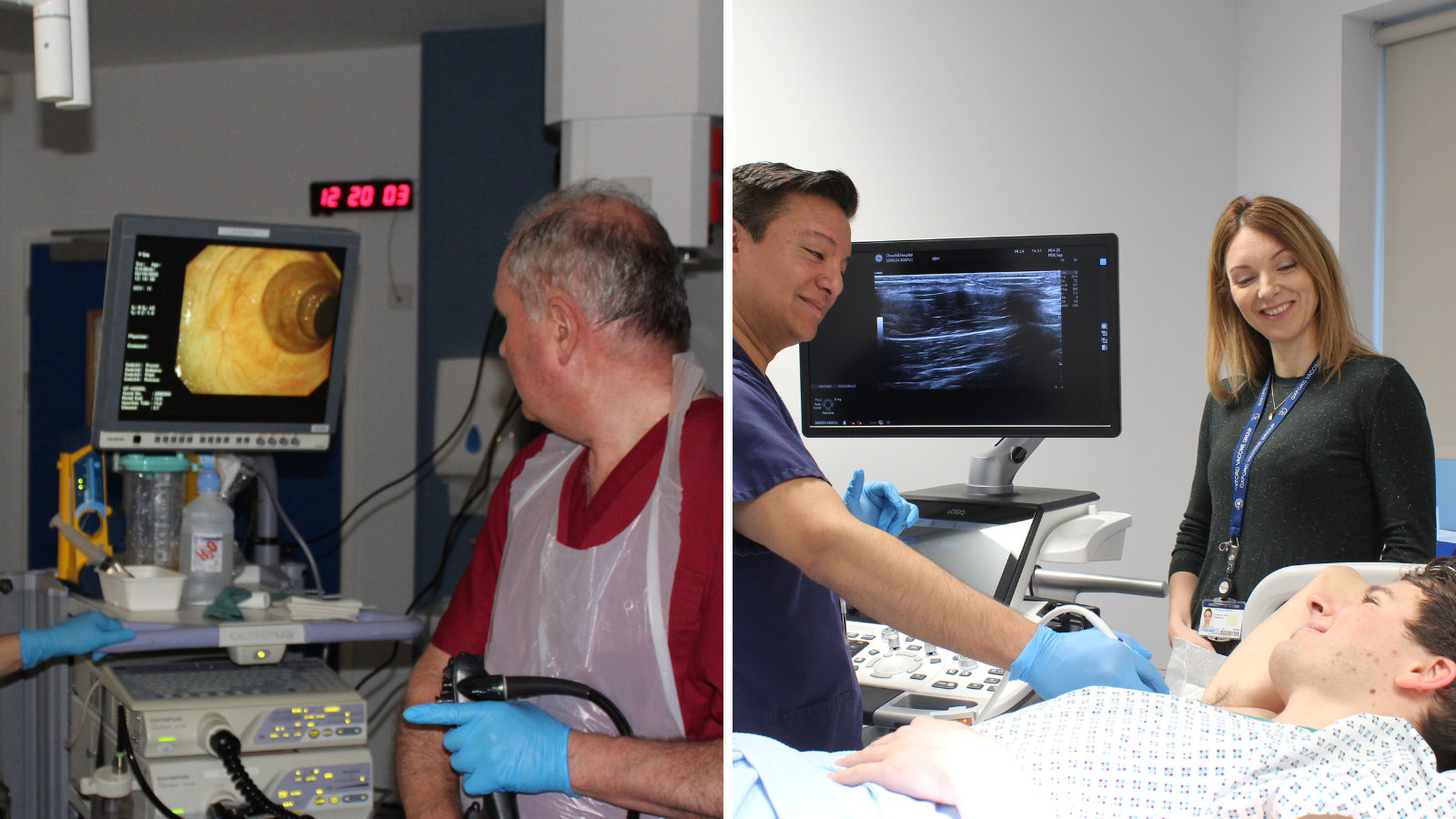Supporting the delivery of clinical research across Oxford, the Oxford Experimental Medicine Clinical Research Facility (EMCRF) provides a specialised environment for early-phase and translational research. A hub of the NIHR Oxford Clinical Research Facility, it plays a critical role in advancing the understanding of new medicines and treatments with dedicated facilities for clinical researchers across Oxford’s universities and NHS partners.
Transforming Oxford’s capabilities in early-phase research
With a focus on experimental medicine research, involving both patients and healthy volunteers, the Oxford EMCRF facilitates research into the safety and pharmacology of new treatments and vaccines. It was established to address a pressing need for a centralised, well-equipped space for experimental medicine and early translational research across multiple disciplines. Prior to its launch in 2023, Oxford had several smaller, department-specific centres for early-stage Phase 1 and experimental medicine research that lacked core staffing and equipment. This fragmented approach limited access and capability, prompting the need for a single, central facility.
The EMCRF works on the central ethos that it is available to all researchers across Oxford University’s Medical Sciences Division and Oxford University Hospitals NHS Foundation Trust. This versatility ensures that teams from various specialties, as well as industry-sponsored studies, can access a dedicated suite of resources and expertise to deliver high-intensity studies.
Duncan Richards, Climax Professor of Clinical Therapeutics at the University of Oxford and Director of the EMCRF, explains, “We refurbished space at the former John Warin ward in the Churchill Hospital to create a 13-bed unit with specialist facilities for studies with patients. These include negative pressure rooms for respiratory infection challenge studies, and the capability to undertake complex research procedures like endoscopies, lumbar punctures, and biopsies, relieving pressure on access to stretched NHS resources. It very much looks like a hospital ward when you walk in, but with the critical difference that everything we do here is in the pursuit of research.”
The facility offers overnight accommodation, treatment rooms and consulting rooms, as well as a Level 2 containment lab for sample processing and storage. It has been designed from the ground up to support a broad range of experimental medicine research, from simple observational studies to complex interventional trials.
With studies coming into the EMCRF from various disciplines, support from the Oxford Joint Research Office (JRO) means the set-up and governance of studies is a smooth process. “We have a well-streamlined onboarding process now for new studies, which includes a detailed risk assessment,” explains Professor Richards. “By working closely with the Oxford Joint Research Office, we can ensure that the information we’re collecting directly enables this risk assessment. We apply a common approach that supports a more efficient and rapid study set-up, whether the study comes from vaccines, respiratory, gastroenterology or neurology.”
Diversifying the research workforce
The EMCRF is committed to enhancing the role of nurses and allied health professionals in research. Through a partnership with Oxford Brookes University, it contributes to training programmes that equip nurses and other advanced clinical practitioners with the skills needed to lead and support studies.
“One of the core purposes of the EMCRF is really to enable training and development and to improve the diversity of research workforce. And of course, Oxford Brookes University is where most of our nurses, occupational therapists and other allied health professionals are training, so this is a natural partner for us,” says Professor Richards.
Through an apprenticeship-style model, the EMCRF is working with Oxford Brookes University and OUH NHS Foundation Trust to develop an advanced training programme where nurses can apply to develop critical research skills as part of their day-to-day clinical role. With most of its studies focusing on complex interventions and first-in-man trials, which would likely be led by a medical doctor, Professor Richard’s team are exploring opportunities for hosting nurse-led research, given the range of different patient groups and specialities that pass through the facility. This would include cross-cutting studies of patient experience and the process of research.
Improving patient access
As well as pushing the frontiers of medicine, like administering the UK’s first doses of two novel therapeutics for Hepatitis B and Huntingdon’s Disease, the EMCRF is playing its part to offer NHS patients access to cutting edge research in a timely manner. Specialised research clinics for patient referrals offer an expedited appointment and longer consultations, while also providing opportunities for patients to hear about a range of opportunities to participate in research.
“We offer standard NHS care, but we deliver this in a research framework, so patients get exactly the same care as they would in the NHS, except they may be seen a little faster,” explains Professor Richards. The team have piloted this in difficult to recruit areas like inflammatory bowel disease, and are now expanding to haematological malignancies and dermatology. This approach means that patients are approached right at the point of diagnosis when their interest in research is high, resulting in a high uptake into studies.
“Initiating smaller, more impactful studies in an environment that fosters collaboration, compared with chipping away at a large Phase 3 trial, is where our CRF really adds value,” says Professor Richards. “I’ve worked in this space for a long time, but the breadth of what we’re able to deliver is really exciting.”

